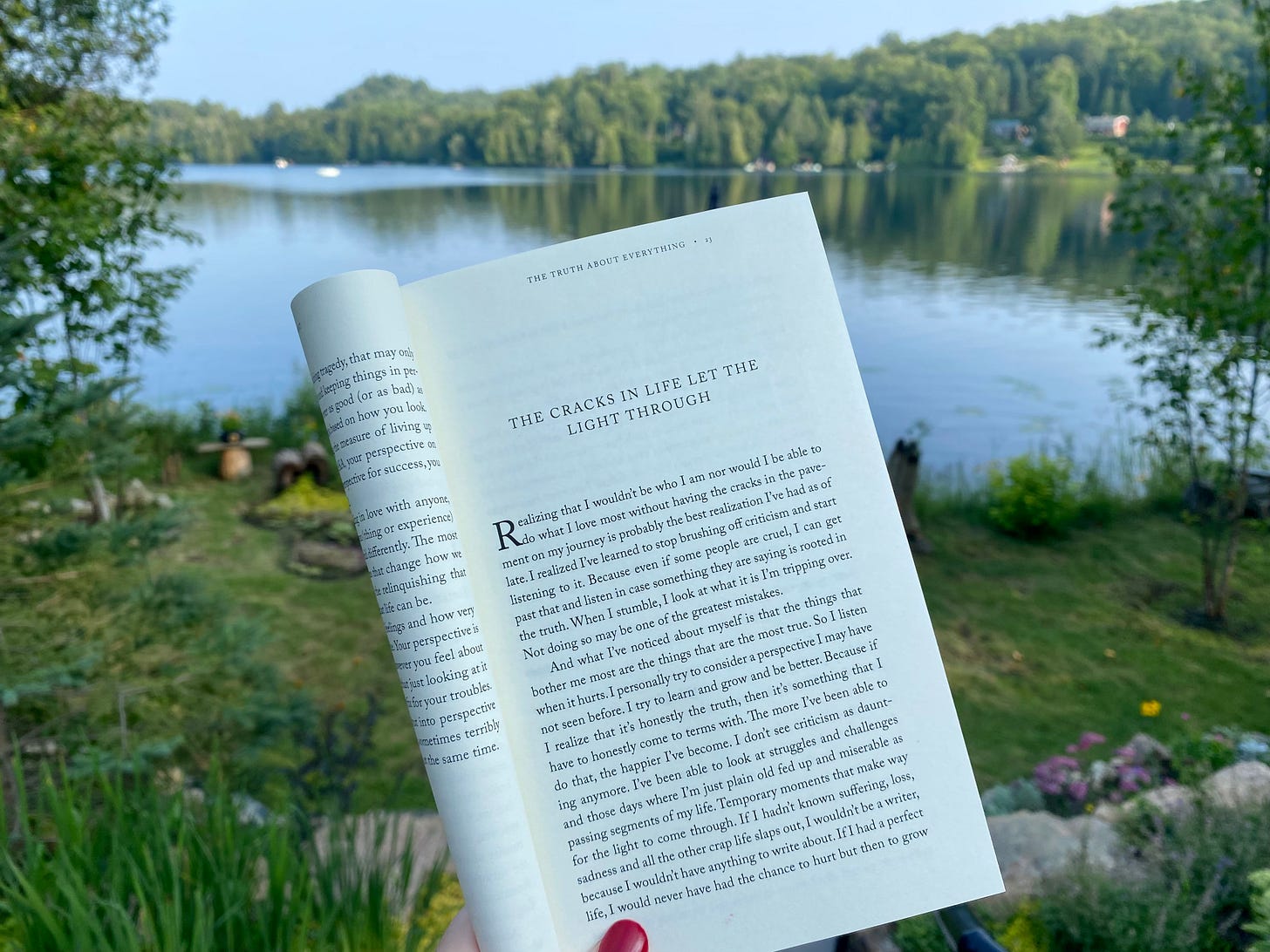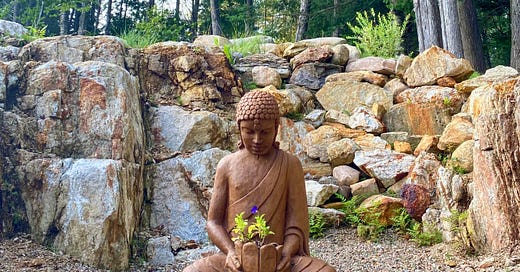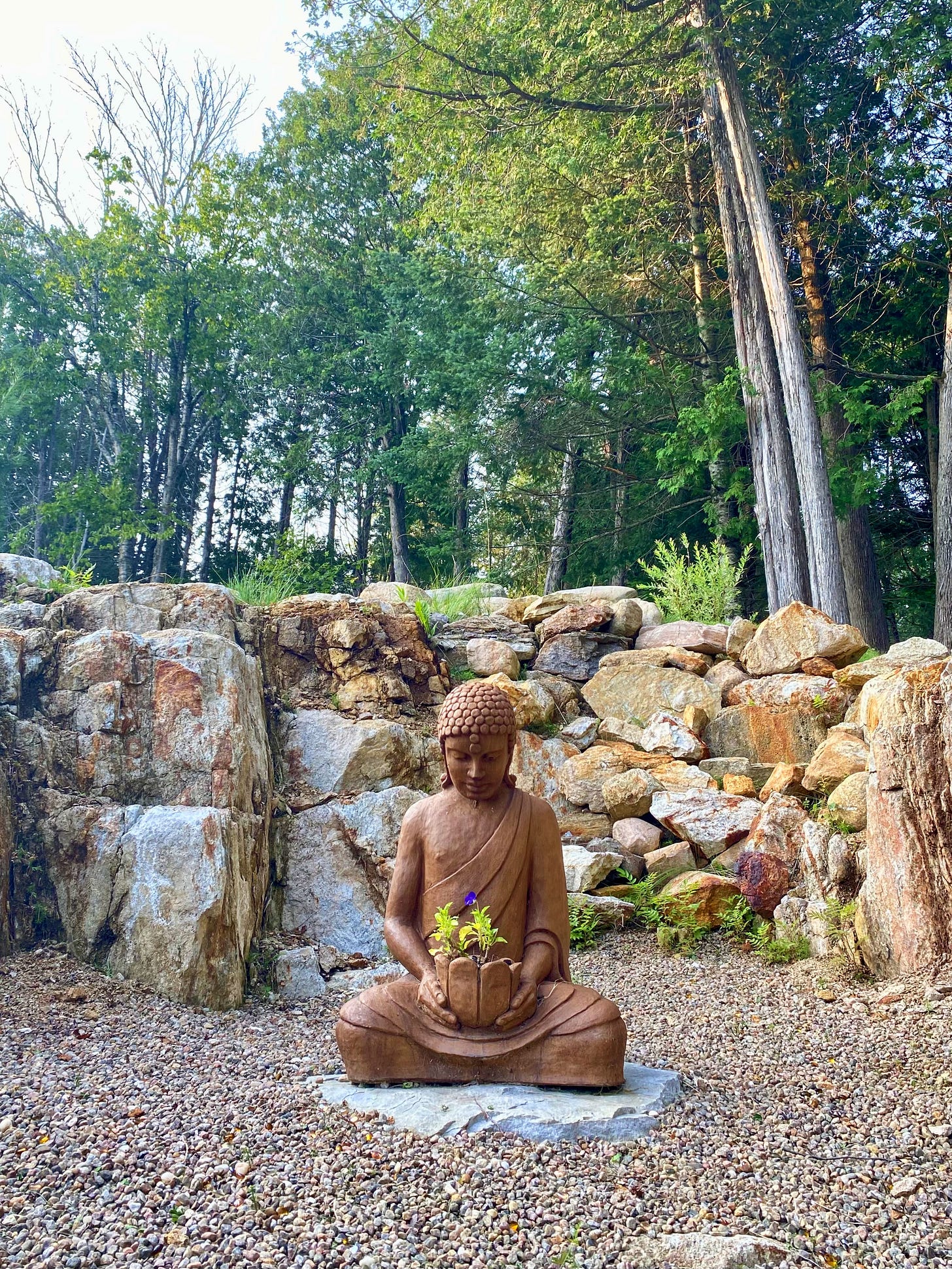The worst advice touted over and over again in the two years I’ve been writing online is “You have to write every day” to become a good writer. But doing anything excessively is a recipe for burnout. And the reality is most writers benefit from rest periods that include reading, relaxing, socializing, and exploring. I say this having broken a 92-week publishing streak to do just that.
Two weeks ago, I decided to spontaneously take time off because I felt burnt out and my initial thought was I’ll have to write my newsletter in advance and schedule it to go out while I’m offline (like I did earlier this summer). But then I remembered two things I’ve learned the hard way in my ten-year career.
Two Hard-Earned Lessons
When you cram the work you would be doing during your vacation time into the week(s) prior to your break, you kneecap the extent to which you relax and reenergize during your break.
We’ve all been there: going above and beyond to get double the work done in half the time so we can rest easy on vacation, only to find that we’re so depleted leading up to our coveted “time off” that we can barely muster the energy to pack and get organized. Adrenaline usually kicks in and we manage to get to our destination but hell, when your body’s functioning at a 2% battery level, much like your phone, you need to recharge before you can do anything else.
Reframe: So now, instead of asking myself, How do I redistribute my work to compensate for my time off? I ask myself, How can I reduce my workload to facilitate well-deserved time off that will position me to come back stronger? Lightening your workload is a skill you develop over time. And granted it can be difficult coordinating with teams, it’s up to you to initiate the “how.”
I care more about my well-being than I do anyone’s perception of me.
Early in my career, I put way too much emphasis on how others, specifically managers and peers, perceived me and my work output. I became addicted to the external reward of praise for going above and beyond, and my ability to “make anything happen.” But my kryptonite was taking on too much and burning myself out. I count myself lucky I never got to the point of needing to go on medical leave like many kind-hearted, good-natured people I’ve encountered over the years. But I’ve definitely come close a time or two.
Reframe: As far as maintaining my newsletter publishing streak, I realized my instinct to batch them ahead of time would really just be a ploy to appear as though I was operating at my normal, optimal cadence when the reality is I was feeling tired and needed a break. So I opted to take a break from writing guilt-free with the understanding that I wasn’t losing anything but gaining more fuel to keep writing in the future.

The Paradox of Giving Up
In her workout videos, trainer Shona Vertue offers the following rationale for why you should mentally “hang in there” during difficult poses:
“Your mind gives up before your body does.”
Having stopped short of her timer many times in the several years I’ve been training with her, I concur I quit mentally before I quit physically. But that’s a good thing.
I see burnout as far more dangerous in that your body gives up before your mind does. And that’s a lot harder to recover from. It can take you weeks, months, or even years to bounce back. And there’s a residual effect that haunts you long beyond that—a wariness of coming anywhere near the same workload that drove you to your demise.
My advice to you, based on what I’ve seen and experienced in my ten-year career spanning four countries, is this: think of your personal battery like the battery of your phone. Once you drop to 20%, your hazards should kick in. You’re officially in “low power mode” and should prioritize conserving what you have. Then plug yourself into outlets that will recharge your battery. If you drop to 2%, you’re officially crashing. You can’t do anything other than basic necessities and your priority is to recharge at all costs.
Pause for a moment to reflect on your current battery level. What can you do to increase it? Whatever it is, do more of that. Conversely, avoid or reduce exposure to what drains you—this can apply to people as much as activities. Noticing what and who energizes you (versus drains you) is a game changer in elevating your health and happiness.
If there’s one thing you take from this edition, I hope it’s this: put yourself first. You’re the main character in your life and you can’t give your best to your supporting characters unless take care of yourself first. It’s the same rationale flight attendants use for why you have to put your oxygen mask on first, no matter how eager you are to help your kids, grandparents, or any other vulnerable person next to you. You come first.
Thanks for reading and have a wonderful week,
P.S. If you’re feeling tired or burnt out, here’s a photo of a Buddha statue my neighbour installed in her garden for some extra zen and healing. Hang in there.
⏩ If you want to help me promote my newsletter, share this one with friends.
💻 If you want to build a cohort-based course, join my Course + Community of Practice.
☕ If you want to grab coffee in Montreal, hit reply to let me know when you’re in town.





I always think streaks are useful when getting started. Once you like something I think you should take a break as soon as possible. You quickly get to realize the magical sensation of “oh I miss that” and realize that the thing you found worth doing is way more sustainable than you imagined. I have a mantra “write most days” which gives me some wiggle room to breathe and let the natural flows of creativity guide me.
Great article. We all can learn from it. Btw, love the Buddha…so calming